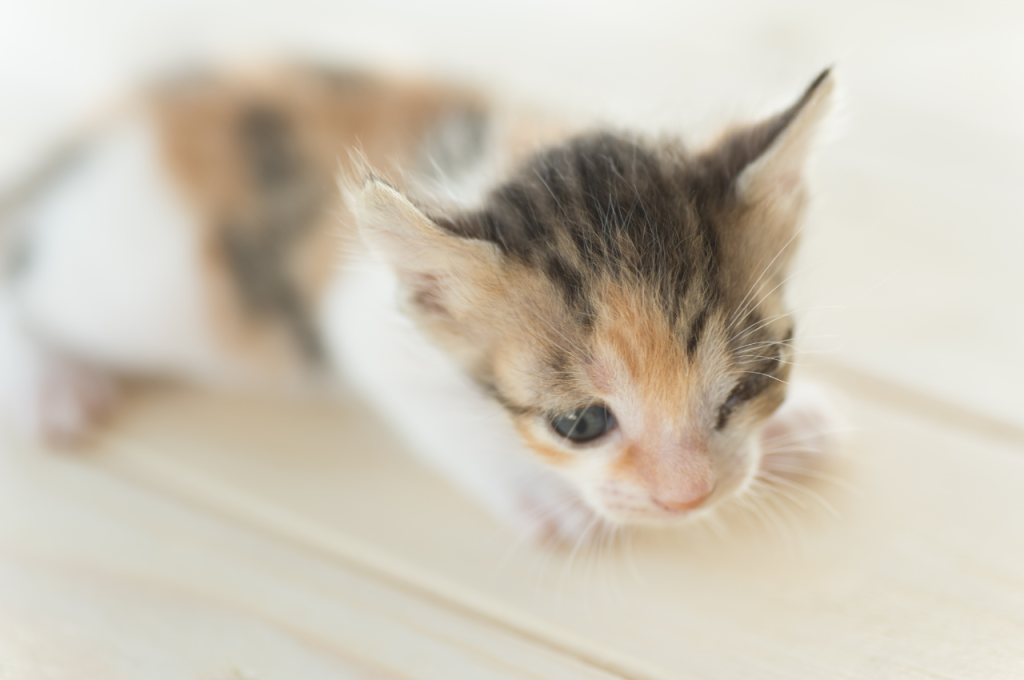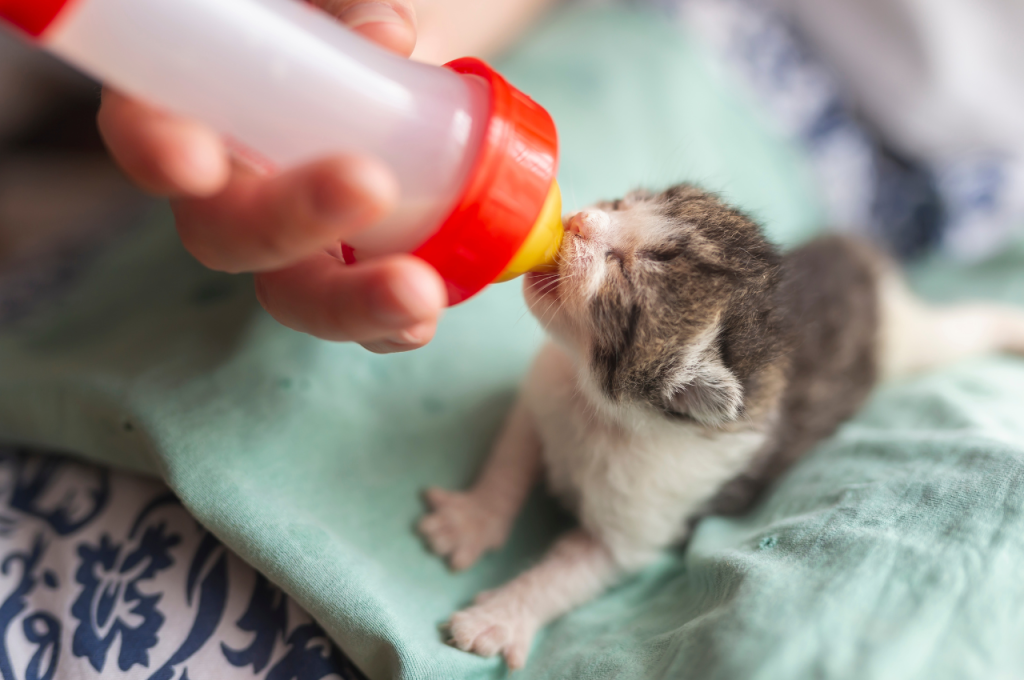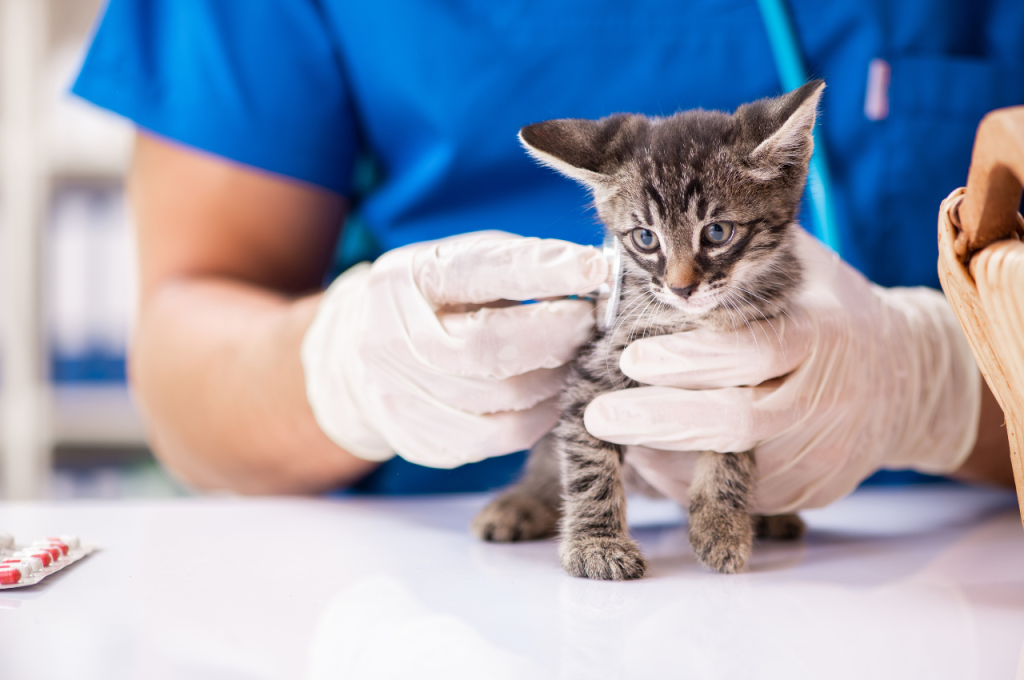To save a kitten from dying, provide immediate veterinary care and keep it warm and hydrated. Kittens are fragile creatures that require prompt attention to ensure their survival.
By following these steps, you can give the kitten the best chance of overcoming its health crisis. Remember, quick action is crucial in saving a young feline’s life. Whether you found the kitten abandoned or noticed it in distress, your intervention can make a significant difference. In this blog post, we will explore the essential steps to take when faced with the critical situation of a kitten in need. Let’s delve into the practical ways you can save a kitten from dying and become a hero in its eyes.
Recognizing The Signs of Distress in Kittens
Recognizing the signs of distress in kittens is crucial in saving their lives. Look out for symptoms such as lack of appetite, lethargy, and difficulty breathing. Seek immediate veterinary attention to increase the chances of survival.

Physical Symptoms
Recognizing the signs of distress in kittens involves observing their physical symptoms carefully. Symptoms such as excessive crying, lack of appetite, weight loss, and unusual lethargy can indicate that a kitten is in distress. Additionally, signs like diarrhea, vomiting, or difficulty breathing are critical indicators that something may be wrong. It’s essential to monitor these physical symptoms closely and consult a veterinarian if they persist or worsen.
Behavioral Changes
Common indicators include excessive crying, reluctance to eat, lethargy, or hiding more than usual. Distressed kittens may also show signs of aggression or withdrawal. Changes in grooming habits or litter box usage can also signal distress. Promptly addressing these signs is crucial, as they can indicate health issues or environmental stressors. If you notice any of these behaviors, consult a veterinarian to ensure the well-being of your kitten and address any underlying problems. Early intervention can significantly improve a kitten’s chances for a healthy and happy life.
Immediate Steps to Take for a Distressed Kitten
When faced with a distressed kitten, it’s essential to act quickly to save its life. Immediate steps can be taken to provide the necessary care and support to ensure the kitten’s well-being. By creating a warm environment and stimulating its appetite, you can increase the chances of the kitten’s survival.
Creating a Warm Environment
To begin with, it’s crucial to create a warm and comfortable environment for the distressed kitten. The first step is to find a quiet and secluded area where the kitten can feel safe. It’s advisable to use a small box or a crate lined with soft blankets or towels to provide warmth and comfort. Placing a heating pad on low heat under the bedding can help maintain the kitten’s body temperature. However, it’s important to ensure that the heating pad is covered to prevent direct contact with the kitten’s delicate skin. Regularly monitor the temperature to avoid overheating or cold exposure.
Stimulating Appetite
When a kitten is distressed, its appetite may be affected. Stimulating its appetite is crucial to provide it with the necessary nutrients for survival. One effective way to stimulate appetite is to offer it kitten formula or milk replacement specifically formulated for kittens. These can be found at most pet stores or veterinary clinics. Using a small syringe or a kitten bottle, carefully feed the distressed kitten small amounts of the formula at regular intervals. It’s important to be patient and gentle during the feeding process, allowing the kitten to suckle at its own pace.
Another method to stimulate appetite is by offering wet kitten food. Gently warm the food to enhance its aroma and make it more appealing to the kitten. Place a small amount on a plate or in a shallow dish and encourage the kitten to eat by using your finger or a small spoon. If the kitten shows interest but struggles to eat, consider mashing the food into a more manageable consistency.
Remember, these immediate steps are crucial for the well-being of a distressed kitten. By creating a warm environment and stimulating its appetite, you are providing the necessary care and support to increase its chances of survival. Acting promptly and providing the right care can make a significant difference in saving a kitten’s life.
Feeding Essentials for Weak Kittens
When it comes to saving a weak kitten from dying, ensuring they get the right nutrition is crucial. Feeding essentials for weak kittens play a vital role in their recovery and overall well-being. In this section, we will discuss the important factors to consider when feeding a weak kitten, from choosing the right formula to feeding techniques and schedules.
Choosing The Right Formula
When selecting a formula for a weak kitten, it’s essential to opt for high-quality kitten milk replacer. Look for a formula specifically designed for kittens, as it contains the necessary nutrients to support their growth and development. Avoid feeding them cow’s milk, as it does not provide the essential nutrients required for a kitten’s health.
Feeding Techniques and Schedules
Feeding a weak kitten requires gentle care and attention. When bottle-feeding, ensure the nipple of the bottle is an appropriate size for the kitten’s mouth to prevent choking. It’s important to feed the kitten small amounts at regular intervals, typically every two to three hours, to prevent over feeding or dehydration.

Hydration and Its Importance
To save a kitten from dying, ensure immediate hydration by offering water or a balanced electrolyte solution. Administer a few drops at a time to prevent choking and seek veterinary assistance promptly for further care.
Identifying Dehydration
Dehydration can be life-threatening for a kitten, so it’s crucial to be able to identify the signs and symptoms early on. By recognizing the following indicators, you can take immediate action to save your furry friend:
- Dry, sticky gums and tongue
- Sunken eyes or lack of tears when crying
- Lethargy or decreased energy levels
- Panting or excessive thirst
- Loss of appetite or refusal to eat
If you notice any of these signs, it’s essential to act quickly to prevent dehydration from worsening.
Safe Hydration Methods
Ensuring proper hydration for a kitten is vital to their overall well-being and survival. Here are some safe methods to keep your furry companion hydrated:
- Fresh Water: Provide a bowl of clean, fresh water at all times. Make sure to change it regularly to keep it free from contaminants.
- Water-rich Food: Include wet food in their diet as it contains a higher water content, helping to keep them hydrated.
- Electrolyte Solutions: In cases of severe dehydration, you can use electrolyte solutions specifically formulated for kittens. These can be found at your local pet store or recommended by a veterinarian.
- Water Play: Encourage your kitten to drink water by gently playing with them near a shallow water source, such as a small bowl or a dripping faucet. The movement and sound of water can stimulate their curiosity and urge to drink.
Remember, kittens have specific hydration needs, so it’s important to consult with a veterinarian to ensure you are providing the appropriate amount of water and the right hydration methods for your little one.
The Role of Veterinary Care
Veterinary care plays a crucial role in saving kittens from dying. With prompt medical attention, proper nutrition, and a nurturing environment, veterinarians can provide the necessary support to help these vulnerable creatures thrive and overcome health challenges.
When to Seek Professional Help
If you have found a kitten in need of help, it is important to act quickly. While you may be able to provide some basic care, such as feeding and keeping the kitten warm, you should seek professional help as soon as possible. If the kitten is showing signs of distress, such as difficulty breathing or a lack of responsiveness, you should take them to a veterinarian immediately. Even if the kitten appears healthy, it is still important to have them checked out by a professional to ensure there are no underlying health issues.
Understanding Veterinary Procedures
Veterinary care plays a crucial role in saving a kitten’s life. When you take a kitten to the vet, they will perform a thorough examination to assess the kitten’s overall health and identify any issues that need to be addressed. This may include blood tests, X-rays, or other diagnostic tests. Depending on the kitten’s condition, they may require medication, surgery, or other treatments. It is important to follow the vet’s instructions carefully and administer any prescribed medications as directed.
In conclusion, veterinary care is essential when it comes to saving a kitten’s life. If you have found a kitten in need of help, seek professional assistance as soon as possible. By understanding veterinary procedures and following the vet’s instructions, you can help ensure the kitten gets the care they need to recover and thrive.
Creating a Safe and Nurturing Environment
To save a kitten from dying, creating a safe and nurturing environment is crucial. Keep the kitten warm, hydrated, and fed. Provide gentle care and seek veterinary help promptly. Your quick action and loving attention can make a life-saving difference for the vulnerable little feline.

Comfortable Bedding
When providing a safe and nurturing environment for a kitten, comfortable bedding is essential. Ensure that the bedding is soft, cozy, and free from any potential hazards such as loose threads or small, chewable parts. Kittens enjoy snuggling up in warm, cushioned areas, so providing them with a plush bed or blanket can help them feel secure.
Stress-Free Surroundings
Creating a stress-free environment is vital for a kitten’s well-being. Minimize loud noises and keep the living space calm and peaceful. Additionally, ensure the area is free from any potential dangers such as toxic plants, small objects that could be swallowed, or areas where the kitten could become trapped. By focusing on these aspects, you can create an environment that is conducive to a kitten’s safety and comfort, promoting their overall well-being and giving them the best chance of thriving.
Long-term Health and Wellness
Long-term health and wellness are essential for ensuring the well-being of a kitten. Taking proactive steps to safeguard the long-term health of your feline friend is crucial in preventing potential health issues and ensuring a happy and thriving life for your pet.
Regular Check-ups
Scheduling regular check-ups with a veterinarian is vital for monitoring your kitten’s overall health and detecting any potential issues at an early stage. These check-ups allow for thorough examinations, including weight monitoring, dental health assessment, and the detection of any underlying health concerns.
Vaccinations And Preventive Measures
Administering vaccinations and preventative measures is paramount in safeguarding your kitten from common feline diseases. Vaccinations protect against serious illnesses such as feline leukemia, rabies, and feline viral rhinotracheitis. Additionally, preventive measures such as flea and tick control, and deworming help in maintaining your kitten’s long-term health and wellness.
Frequently Asked Questions
Here are some commonly asked questions about How to Save a Kitten from Dying:
How do You Save a Weak, Dying Kitten?
To save a weak, dying kitten, gently provide warmth, ideally using a heating pad or warm water bottle wrapped in a towel. Offer small amounts of water with an eyedropper or syringe, and consult a veterinarian immediately for professional guidance and treatment.
Can Fading Kittens be Saved?
Yes, fading kittens can be saved with prompt medical attention and supportive care from a veterinarian. It’s crucial to address their hydration, nutrition, and any underlying health issues. Seek professional help as soon as you notice any signs of fading in your kitten.
How do You Keep a Sick Kitten Alive?
To keep a sick kitten alive, provide warmth, fluids, and nutrition. Keep them comfortable, monitor closely, and seek veterinary care promptly.
How do I Make Sure my Kitten Survives?
To ensure your kitten’s survival, you should take the following steps: provide proper nutrition, regular veterinary check-ups, a safe and clean living environment, plenty of exercise and playtime, and lots of love and attention.
Conclusion
Saving a kitten from dying is a crucial responsibility. By taking prompt action, providing immediate medical attention, and creating a safe environment, you can ensure its survival. Remember to monitor the kitten’s behavior, provide proper nutrition, and seek professional help when needed.
With the right care, love, and attention, you can give a kitten a second chance at life. Let’s be responsible pet owners and do our part to save these innocent creatures.
